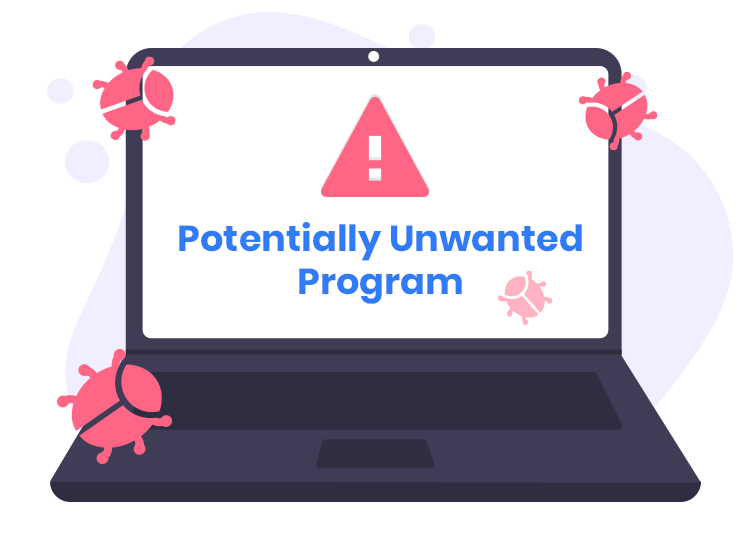
PUPs stands for potentially unwanted program, and these programs are created by people with the main intention of earning money. A wide array of PUP types exist, including advertising-supported software, spyware, and additional browser extensions and toolbars. A computer user may perceive such programs as unwanted, despite the fact that he/she consented to download them.
More often than not, these unwanted software programs are distributed via a commonly used marketing technique called ‘Product Bundling’. These PUAs are included in the download/installation setups of legitimate software programs as an additional or free package.
PUP (Potentially Unwanted Program): Detailed Analysis
The term, PUP (potentially unwanted program) was given by McAfee, a global computer security software firm, when marketing companies started raising objections about having their products being classified as “spyware”, even though all the necessary details for informed consent is included in the End User License Agreement (EULA) agreement.
And it is common knowledge that many if not most users fail to read through the entire download / install agreement before checking the “I Agree” box. As a result, they end up giving consent to download unwanted programs that do not provide any value.
In most cases, these potentially unwanted programs compromise the system security to weaken the firewall, putting all your personal as well as confidential information at stake which includes your login credentials, password, credit card details, etc.
Some of the other forms of PUP’s may clutter your screen with intrusive pop-up ads, track your browsing history, or even show you false security alerts to trick you into purchasing fake security software.
How does a potentially unwanted program install on a computer?
- As discussed above, most PUPs gets installed along with the freeware programs that you download from the Internet.
- Cracked or pirated versions of the paid software and application is another popular tactic used by developers to distribute PUPs.
How to avoid the installation of a potentially unwanted program on a computer?
When installing a freeware/shareware (e.g., games, video editing tool, etc.), make sure you read all the terms and conditions carefully before agreeing to install it. If reading or going through the entire download agreement is too much, then it is advised to opt for the custom installation as this would disclose all the additional programs that might get installed along with it.
If you see additional browser add-ons, extensions, or anything that is not familiar checked, then remember to uncheck them to avoid the installation of PUPs on your computer system.


2 Comments